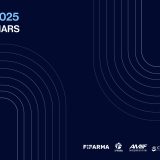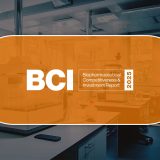Good Regulatory Practices: principles that transform global health
Good Regulatory Practices: principles that transform global health
According to WHO data, more than two billion people lack access to essential medical products, a situation that particularly affects developing countries where regulatory barriers are one of the factors limiting the availability of safe and effective treatments.
Access the full report
December 5, 2024. Las Buenas Prácticas Regulatorias (BPR) son un conjunto de principios clave para el fortalecimiento de los sistemas de regulación de medicamentos. La World Health Organization (WHO) stressed that strong regulatory systems are essential to overcome barriers to access to quality medical products and to move towards global goals such as universal health coverage.
All medicines must undergo regulatory approval, and in Latin America, national regulatory agencies (in charge of this approval) still face major challenges. Taking into account these challenges, and the need to continue strengthening the pharmaceutical regulatory systems in the region as a strategic priority to improve public health outcomes, FIFARMA1 and INNOS2, desarrollaron un estudio integral para evaluar la adopción de las Buenas Prácticas Regulatorias (BPR) según las recomendaciones de la Organización Mundial de la Salud (OMS), que ofrece una guía clara sobre cómo deben estructurarse y operar los sistemas regulatorios, destacando la transparencia, independencia y flexibilidad en los procesos de aprobación de medicamentos.
This report, which assesses the adoption of GRPs in eight countries in the region: Argentina, Brazil, Chile, Colombia, Costa Rica, Ecuador, Mexico and Peru, seeks to offer key recommendations in response to the specific needs of each country to strengthen their regulatory systems. It also proposes strategies to ensure more efficient and predictable regulatory processes.
Main findings
The report is based on a survey of regulatory affairs experts in the 8 countries mentioned above. In total, 1,000 respondents were received 240 answers, mainly from multinational (65%) and national (7.1%) laboratories, as well as regulatory services consultants (14.6%) and representatives of national regulatory authorities (2.1%). The survey highlights the high level of experience of the participants, since 44% reported having 16 years or older de trayectoria in the pharmaceutical sector, with specializations in Regulatory Affairs (45.5%) and Pharmacovigilance (19.5%), ensuring that the findings reflect well-founded perspectives and deep technical knowledge.
To evaluate the implementation of Good Regulatory Practices, a scale of 0 to 100 to measure the level of adoption, classified into three categories: Basic (initial implementation), Intermediate (significant progress with pending areas) and Advanced (principles fully integrated and consistently applied). This methodological approach made it possible to clearly identify the progress and challenges in the implementation of GRP in the region, providing a solid basis for prioritizing efforts and strengthening regulatory systems.
The results show that, Although more than 60% of organizations have an intermediate level in the adoption of these practices, less than 20% have reached an advanced level in key principles such as flexibility and efficiency. For example, in the principle of legality, scores range from 44.4 in Colombia to 75.0 in Brazil, while in efficiency, scores range from 56.8 in Colombia to 67.1 in Mexico and Costa Rica.
Besides, only 15% of countries have aligned their regulations with international standards, which hinders the arrival of innovative treatments and delays the response to public health emergencies. Countries with lower levels of implementation face regulatory processes that can extend up to two more years, limiting the capacity of health systems to respond effectively to the critical needs of the population.
On the other hand, GPR enablers also present major challenges. The region shows a low level of sustainable financial resources, with an average score of 45.9, and a medium progression in competent human resources (52.9). However, areas such as institutional ethics (63.7) and transparency (61.4) reflect significant progress in the region, highlighting the countries' commitment to continuous improvement.
“This report highlights the importance of GRP as a driver of more robust and effective regulatory systems, which are essential to guarantee the safety and health of patients in Latin America. Our alliance with INNOS reinforces our commitment to continue moving towards a regulatory system that allows more timely and equitable access to innovative treatments,” said Diego Salas, Director of Regulatory Affairs at FIFARMA.
The adoption of GRPs will enable health systems in Latin America to respond more effectively to patient needs, accelerate access to essential medicines and ensure their long-term sustainability. This joint effort between FIFARMA and INNOS marks a first step towards fostering collaboration between governments, regulatory authorities and the pharmaceutical industry, with the aim of benefiting millions of people in the region.
Press contact
Raquel Sorza
rsorza@fifarma.org
1 Latin American Federation of the Pharmaceutical Industry
2 Instituto de Prospectiva e Innovación en Salud


